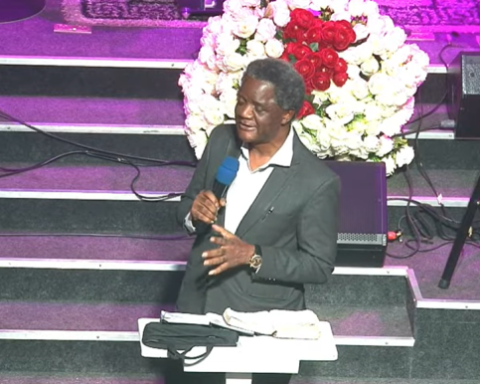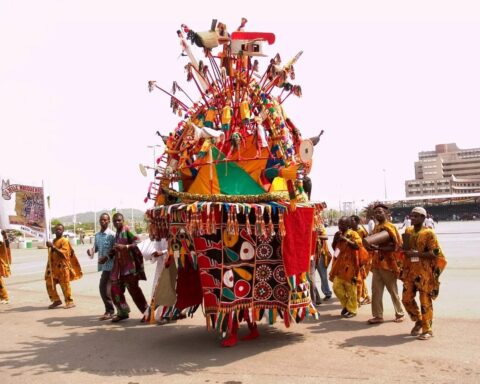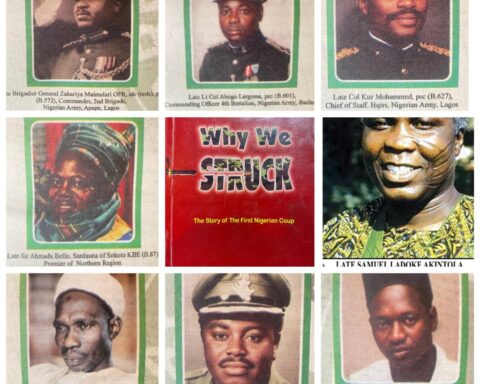I understand wealthy US citizens and conservatives of the evangelical hue rooting for Donald Trump. The rich believe he would loosen regulations and protect them and their businesses from excessive taxation. Conservative evangelicals believe he is the bulwark against wokeism, especially the ultra-liberal variety. And white folks want their country back.
But Africans at home and in the Diaspora – what is their business supporting a guy who described their continent as a “shithole” and has worn his anti-immigrant rhetoric on his sleeves? It didn’t seem to make sense that anyone who saw Trump 1.0 would ever dream or wish for the second version. But now, he’s back. He even has the Supreme Court and the Senate in his Red corner as of press time.
Africans wanted Trump to win for a slightly curiously different reason. They think his anti-immigration policy will force Nigerians and their government to fix their own country. In the US, Nigeria has the highest diaspora population of Africa, 327,000 citizens, followed by Ethiopia, 222,000, and Egypt, 192,000.
It didn’t matter much to the Trumphobes that Nigeria’s US diaspora sends home $20 billion yearly, an increasingly significant source of support for a distressed economy. What is at work is a reverse schadenfreude, which says that the fewer opportunities Nigerian immigrants have outside the country, the more seriously the government would be obliged to fix the country.
Someone even said to me that the “malicious support” for Trump was payback for the bad leaders that the US routinely propped and supported around the world, a list that included Saddam Hussein, Augusto Pinochet and Mobutu Seseko.
Republican African record
Some pro-Trump sentiments are, however, driven by facts. For example, Republicans have a far better record of engaging Africans than Democrats. The Republican Party opposed colonialism. Its support for African initiatives such as the African Growth and Opportunity Act (AGOA) and efforts to combat AIDS contrasts with the Democrat’s preference for aid diplomacy.
The hope is that Trump 2.0 will not be an exception. Here, Diasporans are not too far from their Black cousins in the US. A NAACP poll in September showed that one in four Black men under 50 supported Trump for president.
Trump 1.0 showed tough love towards Africa, but it was on his watch, for example, that the US finally authorised the sale to Nigeria of the much-needed fighter jets for the prosecution of the war on Boko Haram, which President Barack Obama had blocked for eight years. On his part, President Joe Biden will only make a brief visit – his first to Africa in four years – to Angola on his way out of the White House.
Better or worse?
Trump’s overwhelming victory might mean one of two things for his presidency: The weight of the responsibility could humble him and increase the likelihood that he would be more restrained than before. On the other hand, it could also bring out the worst in him – that feeling that he never really lost in 2020, that he was cheated of victory as he claimed, that it’s now time to take his pound of flesh with a vengeance.
We’ll have to wait and see. If Trump 2.0 means Africans who were not on the radar during the campaign will now have to look inward and find their way through an uncertain future, then so be it.
Ukraine and Gaza
Trump’s victory might hasten the end of the war in Ukraine and, hopefully, improve the protracted global supply chain crisis that has affected the supply of agricultural products and cooking oils to many African countries. Ukrainian President Volodymyr Zelensky knows he cannot depend on Trump to bear the cost of a war that has, for all purposes, become a meat grinder. The war in Ukraine might end sooner than later.
As for the Middle East, Trump. 1.0 moved the Embassy of the US from Tel Aviv to Jerusalem despite protests by the Palestinians and some Arab countries. If that means anything, it should suggest that Trump 2.0 will not walk on the eggshell of a two-state solution in his approach to the current war on Gaza. He’s flat-out pro-Netanyahu and big on oil deals with Gulf states.
I make no pretence of my dislike of Trump’s politics. Nor do I have any illusions that his second term would be significantly different from his first, which left the world holding its breath dangerously for four years. But if he’s the man American voters have chosen to lead them, so be it. Unfortunately, what America does – for good or ill – affects the rest of the world whether or not we cast a ballot.
ISHIEKWENE is the managing director of Leadership, the Abuja-based daily.



























